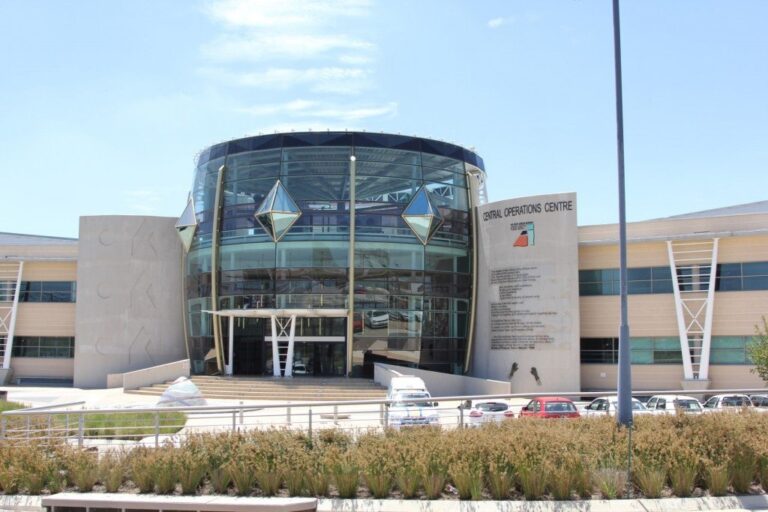Government is anticipating making debt repayments of R121 billion over the medium term for its financially distressed state-owned entities (SOEs).
The Medium Term Budget Policy Statement (MTBPS) said large domestic capital repayments in 2023/24 stemmed from the maturity of bonds issued by the Industrial Development Corporation (IDC), the Development Bank of Southern Africa (DBSA), Transnet, and the SA National Roads Agency Limited (Sanral).
ADVERTISEMENT
CONTINUE READING BELOW
It said capital repayments will be relatively lower in the following three years as state-owned companies build cash flows to manage maturities, and capital repayments are expected to decline significantly after another spike in 2027/28.
The MTBPS said weak economic growth has compounded the poor financial position of most SOEs since 2019.
“Capital investment continues to slow, falling below company budgets, with some large enterprises facing serious liquidity problems.
“Operational inefficiencies, high cost structures, and onerous debt obligations continue to hamper profitability and cash flows, intensified by non-payment for services.
“Many companies are unable to attract funding at favourable rates and terms and rely on fiscal funding for support,” it said.
Denel
The MTBPS said defence SOE Denel remains in financial distress and has not submitted its annual financial statements since 2019/20.
It said the government disbursed R1.9 billion to Denel through the Special Appropriation Act (2022) in March 2023, which was proportionate to the entity’s share of proceeds from the sale of non-core assets.
The MTBPS said Denel used this funding to help settle debt obligations, pay for restructuring and enhance working capital.
It said the remaining portion remains ring-fenced until other non-core assets are sold.
The MTBPS said Denel, in September 2023, requested that a further R100 million of the ring-fenced funds be released to settle the last government-guaranteed debt obligation.
“Following its settlement, Denel has no debt obligations remaining, and its government guarantee will be revoked,” it said.
Land Bank
The MTBPS said the Land Bank remains in default after failing to meet its debt obligation in April 2020.
National Treasury transferred R5.1 billion to the Land Bank at the end of 2022/23, subject to conditions, as part of a R7 billion fiscal allocation.
“Government has repaid approximately R1.4 billion to all guaranteed lenders of the Land Bank since its default, eliminating its guarantee exposure.
“The remaining portion of the R7 billion fiscal allocation will be transferred to the Land Bank in this financial year to use in its blended finance scheme during March 2024,” it said.
Sanral
The MTBPS said a long-term dispute over phase 1 of the Gauteng Freeway Improvement Project (GFIP) has limited Sanral’s investment capacity.
This is a reference to the dispute between motorists and government over the payment of e-tolls on the GFIP.
ADVERTISEMENT
CONTINUE READING BELOW
The MTBPS said government’s decision to take over the phase 1 commitments will support Sanral’s ability to finance the strengthening, rehabilitation “and expansion of the toll road network”.
“As a result of revisions to Sanral’s borrowing limits and guarantees associated with the R23 billion injection made in the 2022 Adjustments Budget, Sanral will now seek approval to revise its funding plan to ensure continued investment in the national road network,” it said.
The MTBPS did not mention anything about the continuing discussions between the Gauteng Provincial Government, Sanral and National Treasury over the plan to scrap e-tolls.
Finance Minister Enoch Godongwana announced in his MTBPS speech in October 2022 that to resolve the funding impasse over the GFIP e-toll scheme, the Gauteng provincial government had agreed to contribute 30% to settling Sanral’s GFIP debt and interest obligations, while national government would cover 70%.
The total amount to be paid by the provincial government is R12.9 billion – 30% of Sanral’s R43 billion debt – using different revenue streams in the form of a hybrid model.
Sanral confirmed last month that the R23.736 billion allocation to Sanral in the Special Appropriation Act of 2022 after last year’s MTBPS was paid in two tranches of about R8.99 billion and R14.756 billion.
Gauteng Premier Panyaza Lesufi claimed last month that national government is delaying him “in signing off that e-tolls are history”.
Lesufi told Moneyweb that National Treasury, Sanral and the Gauteng Provincial Government are at the “tail end” of the process to scrap e-tolls but backtracked on reported comments he previously made about refunding motorists who had diligently paid their e-toll accounts.
He said the Gauteng Provincial Government initially had five points of difference with National Treasury before it could sign off on ending e-tolls, and only one now remained.
Transnet
The MTBPS said Transnet continues to experience weak profitability and deteriorating liquidity due to operational challenges, a high debt burden, and low cash flows, with a prolonged period of underinvestment in capital infrastructure and maintenance backlogs combining to limit revenue-generating capacity.
Transnet has initiated a five-year R122.7 billion capital investment programme, including R99.5 billion for operational maintenance and R23.2 billion to expand infrastructure, starting in 2023/24.
Further borrowing by Transnet is restricted by its existing debt, which stood at R130 billion at the end of March 2023, and declining revenues.
Transnet’s issued guarantee remains at R3.5 billion.
Godongwana said in his MTBPS speech on Wednesday that there will only be a conversation about whether and how the government can provide financial support to transform the logistics sector once three objectives are reflected in Transnet’s corporate and operational plans.
These objectives relate to enhancing its efficiencies, facilitating the introduction of competition, and leveraging the financial and technical support of the private sector.
The government, in the 2023 budget, announced it was providing Eskom with debt relief amounting to R254 billion from 2023/24 to 2025/26, subject to strict conditions, to enable the utility to undertake much-needed maintenance and investment and improve its financial position.

